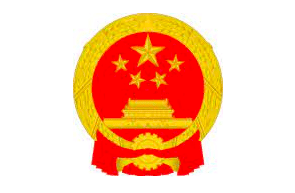?The current arbitration law was promulgated in 1994, and individual clauses were amended in 2009 and 2017 respectively. Today, its legislative thinking, style, and terms have not only failed to keep up with the development and practice of international arbitration, but it is also very backward compared with domestic fraternal laws.
Yesterday, the Ministry of Justice officially pushed out of the “Arbitration Act (Amendment) (draft).” After 27 years, this revised manuscript has brought about “overhaul” rather than “small supplement”, which is exciting, and there are many bright spots and unsolved problems.
To this end, the commercial arbitration research has extracted 10 highlights of the opinion draft for quick browsing, and compared the draft with the current “Arbitration Law” (2017 Revised Edition) and some relevant judicial interpretations. .
1. Ten highlights
Compared with the current arbitration law, there are ten core changes in this consultation draft:
- “The meaning of arbitration” has become the only real prerequisite for the validity of the arbitration agreement. The “arbitration institution” and even the “arbitration rules” are not clearly agreed upon and are no longer an obstacle to the validity of the arbitration agreement.
- An important international concept of “place of arbitration” has been added, and the court of dismissal and the enforcement court of preservation (one of the options) include the court of the place of arbitration.
- It is possible to select arbitrators from the list of arbitrators, and Articles 91 to 93 even provide for “ad hoc arbitration”.
- Objections to the validity of an arbitration agreement can no longer be filed by the arbitration tribunal or the court, but must be filed with the arbitration tribunal and then with the court; the time is no longer “before the first hearing”, but the “due period” Inside”.
- The two provisions on property preservation and evidence preservation are expanded into a whole section of the provision on interim measures, which includes behavior preservation, and it is clear that the arbitration tribunal can decide whether to adopt preservation measures.
- The reasons for withdrawal are limited, and it is no longer allowed to apply for withdrawal on the grounds of “forgery of evidence and concealment of evidence”; the time for withdrawal has also been shortened from 6 months to 3 months (referring to the UNCITRAL “Model Law”).
- The determination of the validity of the arbitration agreement under special circumstances such as principal-subordinate contract disputes and company and enterprise representative litigation shall be clearly stipulated.
- It is clarified that foreign arbitration institutions can be registered by the judicial department at the provincial level in China, and the judicial department of the State Council shall file for the record.
- Added the provision that parties can apply for reconsideration by the higher court for revocation rulings.
- Provisions were made for matters that were not previously provided for, such as service delivery and execution of objections by outsiders.
2. Full text comparison (“Arbitration Law” (2017 Revision), “Interpretation of Arbitration Law”, “Interpretation of Implementation of Arbitration Law” (2018) vs “Draft Opinions”)
More at https://mp.weixin.qq.com/s/e4Kam2fApEyFlIfZ9Sq3mw




